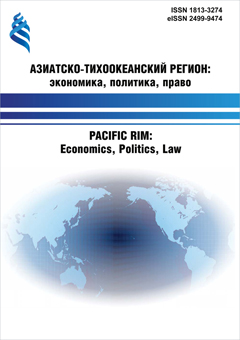PROSPECTS FOR CRIMINALIZATION OF ECOCIDE IN THE PRACTICE OF INTERNATIONAL RELATIONS
DOI:
https://doi.org/10.24866/1813-3274/2022-4/136-148Keywords:
ecocide, international crimes, genocide, war crimes, environmental security, International Criminal Court, act of aggression, international responsibility.Abstract
Increased pace of economic development and transformation of economic
relations result in negative processes lead to the degradation of ecological systems, expressed in changing climatic conditions, depletion of the ozone layer, lack of fresh water,
reduction of biological diversity, air pollution, pandemics and natural disasters. In turn,
the degradation of ecological systems actualizes the recognition of a favorable environment as a right of the third generation. Recognition of the natural environment as an independent object of international legal protection naturally resulted in the formulation of
the issue of developing a mechanism for implementation of legal responsibility for committing acts that encroach on the environment or its elements. The article examines the
legal nature of ecocide in the context of analysis of the Convention on the Prohibition of
Military or Any Other Hostile Use of Means of Influencing the Environment of December 10, 1976. As part of retrospective analysis, proposals for the criminalization of ecocide in the practice of international relations are studied, as well as ecocide is considered
in the context of other international crimes and as a possible crime under the jurisdiction
of the International Criminal Court. It is concluded that in international law the destructive impact on the natural environment is subject to political and legal condemnation and
prohibition within the framework of convention obligations; however, at the same time,
in the practice of international relations, conditions have arisen for the prospective criminalization of ecocide as an international crime falling under universal jurisdiction.



